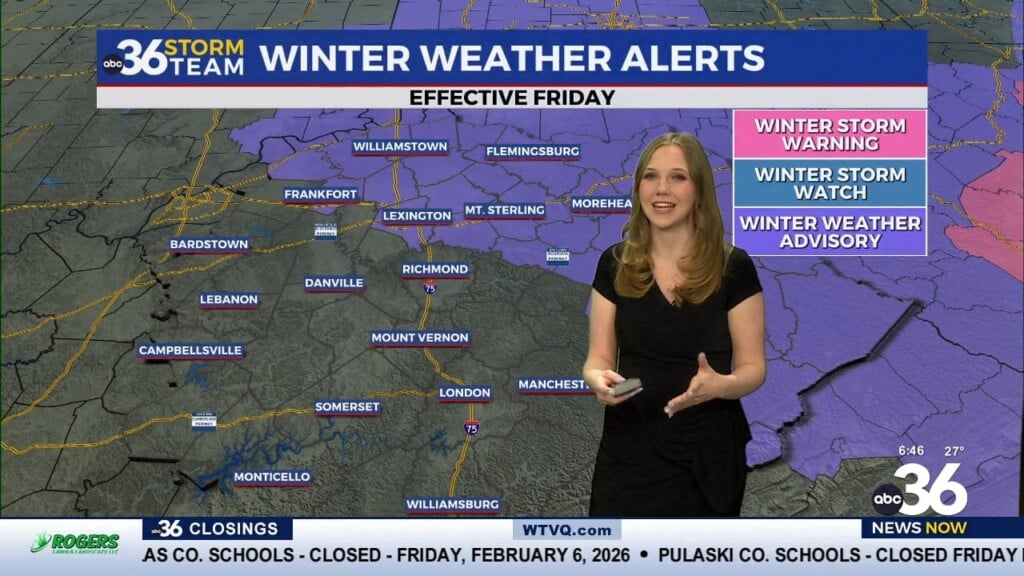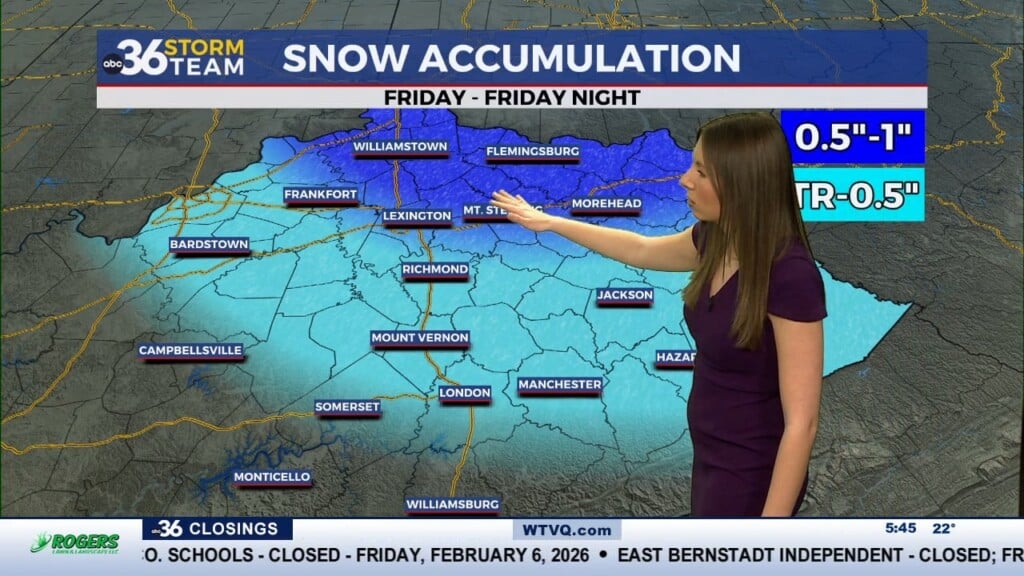Kentucky soybean farmers feeling the impact of Trump’s trade tariffs as sales to China stall
LARUE COUNTY, Ky. (ABC36 NEWS NOW) – Kentucky soybean farmers say they are facing one of the toughest seasons in years, as President Donald Trump’s trade policies continue to reshape the agricultural economy across the United States.
Soybeans are one of Kentucky’s top agricultural exports, but since the Trump administration’s tariffs took effect, China — once the largest buyer of U.S. soybeans — has stopped purchasing the crop entirely.
“There are zero sales of this crop that was grown the last few months that is now being harvested and sold, and that’s alarming for our industry,” said Caleb Ragland, a LaRue County farmer who grows corn, wheat, and soybeans. Ragland also serves as president of the American Soybean Association.
He explained that before the trade dispute, “every third row” of soybeans grown in the U.S. was exported to China. That later dropped to “every fourth row,” and now, sales to the Chinese market have stopped altogether.
“It’s really hard to take your biggest customer and just snap your fingers and replace it,” Ragland said. “The result is prices are well below the cost of production.”
According to the American Soybean Association, farmers are expected to lose about $110 per acre this year, with Ragland estimating that his farm alone will lose more than $100,000 on its soybean crop.
“We’re dealing with a situation where commodity prices are not historically low, but compared to what our costs of production are, it’s about as bad a situation as I’ve seen in my lifetime,” he said.
Ragland added that the ripple effects go beyond the farm. “Every dollar a farmer earns is turned over six to eight times in the local community,” he said. “When farmers lose money, the entire local economy feels it.”
Representing nearly half a million soybean farmers across the U.S., Ragland said uncertainty is now the biggest concern. “It’s an overwhelming amount of concern,” he said. “Uncertainty is the word I would use to sum everything up. We don’t know what the future holds.”
Despite the challenges, Ragland said he’s hopeful that new markets will open and that leaders in Washington will continue working on trade policies that support American farmers.



